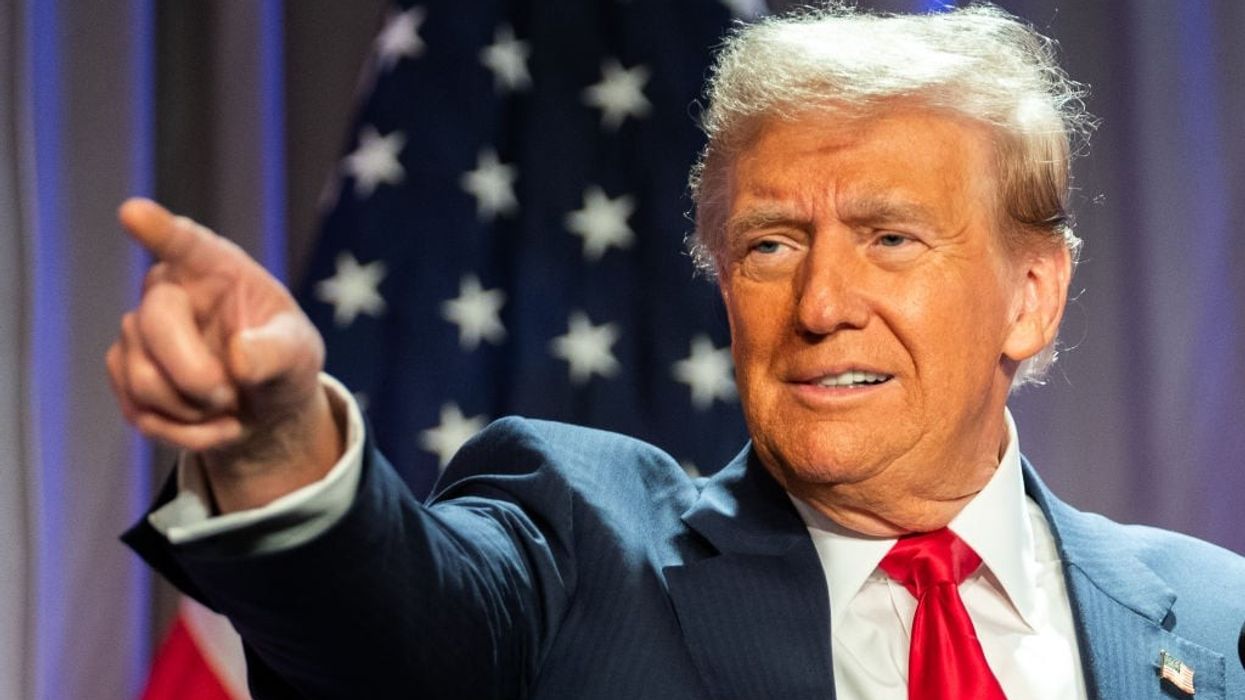US president-elect Donald Trump said that he intends to impose sweeping tariffs on goods from Mexico, Canada and China, prompting a swift warning from Beijing that "no one will win a trade war."
In a series of posts to his Truth Social account, Trump vowed to hit some of the US' largest trading partners with duties on all goods entering the country.
"On January 20th, as one of my many first Executive Orders, I will sign all necessary documents to charge Mexico and Canada a 25 per cent tariff on ALL products coming into the US," he wrote.
In another post, Trump said he would also be slapping China with a 10 per cent tariff, "above any additional Tariffs," in response to what he said was its failure to tackle fentanyl smuggling.
Tariffs are a key part of Trump's economic agenda, with the Republican vowing wide-ranging duties on allies and adversaries alike while he was on the campaign trail.
Both China and Canada issued swift responses, each calling their trade relationships with the US "mutually beneficial."
"No one will win a trade war," Liu Pengyu, a spokesman for China's embassy in the US, told AFP by email, defending Beijing's efforts to curb fentanyl smuggling.
"China believes that China-US economic and trade cooperation is mutually beneficial in nature," Liu added.
Canada said it was "essential" to US energy supplies, and insisted the relationship benefits American workers.
"We will of course continue to discuss these issues with the incoming administration," said the statement from deputy prime minister Chrystia Freeland.
Trump's first term in the White House was marked by an aggressive and protectionist trade agenda that also targeted China, Mexico and Canada, as well as Europe.
While in the White House, Trump launched an all-out trade war with China, imposing significant tariffs on hundreds of billions of dollars of Chinese goods.
At the time he cited unfair trade practices, intellectual property theft, and the trade deficit as justifications.
China responded with retaliatory tariffs on American products, particularly affecting US farmers.
The US, Mexico and Canada are tied to a three-decade-old free trade agreement, now called the USMCA, that was renegotiated under Trump after he complained that the US businesses, especially automakers, were losing out.
"Mexico and Canada remain heavily dependent on the US market so their ability to walk away from president-elect Trump's threats remains limited," said Wendy Cutler, vice president at the Asia Society Policy Institute, and former US trade official.
By citing the fentanyl crisis and illegal immigration, Trump appeared to be using national security concerns as a means to break that deal, something that is usually allowed under the rules set by the World Trade Organization or in trade deals.
But most countries and the WTO treat national security exceptions as something to be used sparingly, not as a routine tool of trade policy.
Trump in 2018 cited national security justifications to impose tariffs on steel and aluminum imports that targeted close allies like Canada, Mexico, and the European Union.
This led to retaliatory measures from the trading partners.
Many economists have warned that tariffs would hurt growth and push up inflation, since they are primarily paid by importers bringing the goods into the US, who often pass those costs on to consumers.
But those in Trump's inner circle have insisted that the tariffs are a useful bargaining chip for the US to push its trading partners to agree to more favourable terms, and to bring back manufacturing jobs from overseas.
Trump has said he will put his commerce secretary designate Howard Lutnick, a China hawk, in charge of trade policy.
Lutnick has expressed support for a tariff level of 60 per cent on Chinese goods alongside a 10 per cent tariff on all other imports.
(AFP)

















 Beets, bears, and brilliant chaos—Dwight Schrute was ready to make Schrute Farms the weirdest B&B on TVGetty Images
Beets, bears, and brilliant chaos—Dwight Schrute was ready to make Schrute Farms the weirdest B&B on TVGetty Images  Too fabulous to function—Jean-Ralphio was born to star in his own disaster-fuelled comedyGetty Images
Too fabulous to function—Jean-Ralphio was born to star in his own disaster-fuelled comedyGetty Images  Omar - a prequel about his early days could’ve been HBO’s next gritty masterpieceGetty Images
Omar - a prequel about his early days could’ve been HBO’s next gritty masterpieceGetty Images Deadpan, dark, and delightful—April Ludgate’s FBI spin-off would’ve been everythingGetty Images
Deadpan, dark, and delightful—April Ludgate’s FBI spin-off would’ve been everythingGetty Images Sassy, spiritual, and full of secrets—Lafayette’s backstory was screaming for a supernatural seriesGetty Images
Sassy, spiritual, and full of secrets—Lafayette’s backstory was screaming for a supernatural seriesGetty Images From Victorian poetry to vampire slaying, Spike’s centuries-long saga deserved its own spotlightGetty Images
From Victorian poetry to vampire slaying, Spike’s centuries-long saga deserved its own spotlightGetty Images Confidence, quirks, and questionable fashion—Schmidt’s next chapter could’ve been rom-com goldGetty Images
Confidence, quirks, and questionable fashion—Schmidt’s next chapter could’ve been rom-com goldGetty Images The villain we hated to love—Negan did get his spin-off, and it’s a bloody good oneGetty Images
The villain we hated to love—Negan did get his spin-off, and it’s a bloody good oneGetty Images Whimsical and wise—Luna’s magical adventures would’ve been a dreamy, otherworldly delightGetty Images
Whimsical and wise—Luna’s magical adventures would’ve been a dreamy, otherworldly delightGetty Images Chaotic queen energy—Gina’s influencer-era spin-off would’ve broken the internetGetty Images
Chaotic queen energy—Gina’s influencer-era spin-off would’ve broken the internetGetty Images 
 Crispello was originally launched by Cadbury in the UK in 2012B&M
Crispello was originally launched by Cadbury in the UK in 2012B&M 